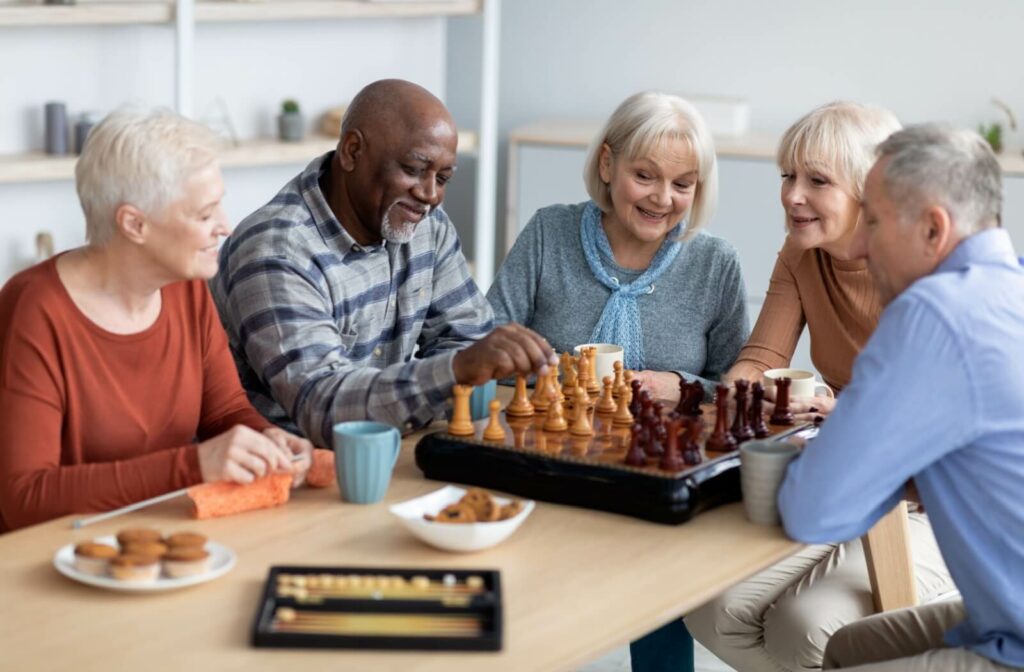Stereotypes about seniors are everywhere, and they often paint an unfair picture. Many people assume that aging automatically means experiencing a decline in independence and mental health, struggling with technology, or becoming disconnected from society.
However, these stereotypes assume that aging is associated with declining health, ignoring the diverse experiences and abilities of seniors. The truth is that preserving your health and mobility as you age is about practicing healthy habits and making good lifestyle choices.
Misconceptions About Aging
Many people hold generalized beliefs about aging that don’t align with reality. The idea that aging equates to becoming frail, forgetful, or irrelevant is a common stereotype.
However, aging is an individual experience influenced by genetics, lifestyle, and environment. Notably, many older adults lead active, fulfilling lives well into their senior years.
The Reality of Aging Today
Many older adults still engage in activities like volunteering, exercising, and learning new skills, proving that age is not a barrier to living life fully.
Genetics, lifestyle choices, and social engagement all play roles in shaping the aging process. By promoting healthy habits and providing access to resources, we can support seniors in maintaining their well-being.
Even for seniors with reduced mobility, there are various care options available designed to enhance independence while providing needed support.
Stereotype: Aging Causes Significant Cognitive Decline
While aging can lead to some cognitive challenges, significant cognitive decline is not a normal part of aging. Society often underestimates the cognitive abilities of older adults, linking age with diminished mental acuity.
However, many older individuals continue to engage in intellectually stimulating activities, from participating in book clubs to enrolling in continuing education courses.
Mental agility can be maintained and even improved with:
- Regular exercise
- Mental tasks
- Healthy diet
Stereotype: Aging Causes Reduced Strength & Mobility
Although muscle loss is normal with age, exercise and physical activity can help preserve your muscle mass, strength, balance, and overall mobility even as you age. Many seniors participate in organized sports, yoga classes, and other fitness-related activities that contribute to their overall health and well-being.
In fact, physical activity may even help manage chronic conditions while boosting physical and mental health. Balance exercises can additionally help enhance your sense of balance and prevent falls. Resistance training can also be an effective way to build and maintain muscle and further reduce the risk of falling.
Many seniors maintain their health through exercise, balanced diets, and physical stimulation, living vibrant and active lives well into their golden years.
Stereotype: Seniors Are Resistant to Change
The “set in their ways” myth is another widespread stereotype. While some may prefer routine, it’s misleading to assume all seniors are inflexible.
Many people remain open to new experiences, technologies, and ideas, continuously adapting to the evolving world around them.
True, change can be challenging regardless of age, but older adults frequently have to adapt to their evolving surroundings. They have lived through technological revolutions, social transformations, and personal transitions, all of which led to changes in their lifestyle. This adaptability is a testament to their resilience and openness to new possibilities.
Although some seniors may value tradition, aging doesn’t automatically mean being resistant to change.
Can Older Adults Still Learn?
The “set in their ways” myth also leads to the misconception that seniors stop learning. While aging can lead to changes in thinking, the vast knowledge and insight that comes with aging is actually useful in acquiring new skills and learning new things.
Older adults often show a strong propensity for lifelong learning. Many seniors:
- Take up new hobbies
- Travel to unfamiliar destinations
- Engage in community activities
Stereotype: Older Adults Are Technologically Inept

A common stereotype is that seniors struggle with technology. While it’s true that some may find it challenging, this is not necessarily true for everyone.
Before you learn to use something, you need experience. However, many older adults live vibrant lives without needing to use smartphones or computers, which may be why they struggle with technology at first.
Still, many older adults use smartphones, tablets, and computers regularly, staying connected with family and accessing information online.
The Rise of Technological Proficiency
Technological proficiency among seniors is rising, and an increasing number of older adults are using social media platforms and online services.
Technology can significantly enhance the lives of older adults, offering tools for:
- Health monitoring
- Social connection
- Entertainment
Workshops, classes, and community resources often provide valuable assistance to those eager to learn, ensuring they remain engaged in the digital world.
Stereotype: Aging Causes Loneliness & Social Withdrawal
Another stereotype is that older adults are lonely or socially withdrawn. While some people may find themselves spending more time alone as they age, depression and loneliness is not a normal part of aging.
Fostering relationships and social networks is key to combating loneliness at any age. Senior living communities, clubs, and online forums provide valuable opportunities for seniors to connect with others, share experiences, and form meaningful bonds that enrich their lives.
Factors that Can Cause Social Withdrawal
Seniors may be more likely to be socially isolated because of various reasons, including:
- Limited mobility
- Lack of transportation
- Loss of a loved one
- Living alone
However, social withdrawal is not solely an issue for seniors, affecting everyone across all age groups. By creating inclusive spaces and encouraging participation in community activities, we can ensure seniors remain socially connected and supported.
The Reality of Aging
Challenging stereotypes about aging is crucial for a more inclusive society. We must recognize aging as a multifaceted experience, celebrating the strengths, capabilities, and contributions of older adults.
By recognizing that aging comes with both positive and challenging experiences, we can build a more inclusive and compassionate community while providing the necessary support to foster continued growth. Contact our team at Meadowcrest at Middletown today to see how we’re making a difference.





